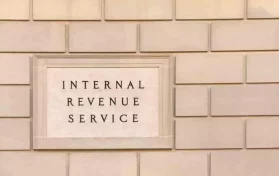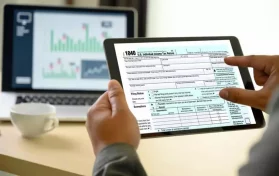
On Monday, January 24, the IRS began accepting 2021 returns. The agency is facing a major backlog – more than 8 million – from the previous tax year, and the IRS is recommending that taxpayers file electronically and “as soon as possible.”
In 2021, the Internal Revenue Service was tasked with a number of jobs that included reconciling tax forms for the 2020 tax year in addition to sending out stimulus payments. The IRS is also facing issues from the pandemic, with many employees working from home. Because of this, the IRS is facing this year’s tax season with many complications as well as the potential for delays in processing incoming tax returns. Furthermore, there is still a shortage of workers for the IRS, and there are a number of paper returns that remain unprocessed.
The current IRS is understaffed by at least 20,000 fewer staff when compared to its 2010 staff. In addition, the current budget for the IRS is down by twenty percent when compared to its 2010 budget. Although the budget is $11.4 billion, when adjusted for inflation, this number is a shortfall, according to the Congressional Budget Office. At least twenty percent of the IRS customer service personnel have been unable to work during the last two years, citing the pandemic and health-related reasons why these individuals cannot complete their jobs.
On Friday, Jen Psaki, White House Press Secretary, stated during a press briefing: “The IRS right now has an unacceptable backlog and the customer service that people are receiving is not what the American public deserves. The agency has not been equipped with the resources to adequately serve taxpayers in normal times, let alone a pandemic.”
National Taxpayer Advocate Erin Collins released a report to Congress on the topic; the IRS is facing a backlog that involves more than 10 million unprocessed returns – over 8.6 million individual tax returns and 2.8 million business returns – as recently as the middle of December 2021. The agency also has nearly five million pieces of unanswered mail from taxpayers.
It is important to note that when the typical tax season begins, the IRS normally has less than one million unprocessed returns.
Collins told Congress that “there is no way to sugarcoat the year 2021 in tax administration.” She added that the past year, as far as filing taxes and seeing returns processed, had been “horrendous.” Collins also added that the current tax year could be just as bad, if not worse than in 2021.
This year, taxpayers will have to reconcile their child tax credit (if applicable) and any stimulus payments received in 2021. This could add to the complications already present in any given tax year, and it greatly increases possible delays in processing returns due to the presence of errors.
The IRS Commissioner, Chuck Rettig, has already warned the American public that delays are likely. Retting said that the agency is “unable” to provide service and enforcement that the American taxpayers “deserves and needs.”
In order to prevent delays, the IRS is telling taxpayers to file electronically, and to file as soon as possible. This year, taxpayers do not need previous years’ returns in order to file. Filers should also opt for a direct deposit if they anticipate a refund. This will hopefully maintain the twenty-one day period between filing, processing at the IRS, and receiving a refund.
This year, the tax filing season will end on April 18, rather than the usual April 15. Emancipation Day will be celebrated in Washington on the 15th, so the agency extended the deadline by a few days.
Taxpayers who need an extension to file may be able to request the extension online by utilizing Form 4868 under the IRS’ Free File tool. In order to be considered for an extension, the form must be submitted by April 18. Those who are printing the form must mail the form with a postmark showing April 18 or sooner.





